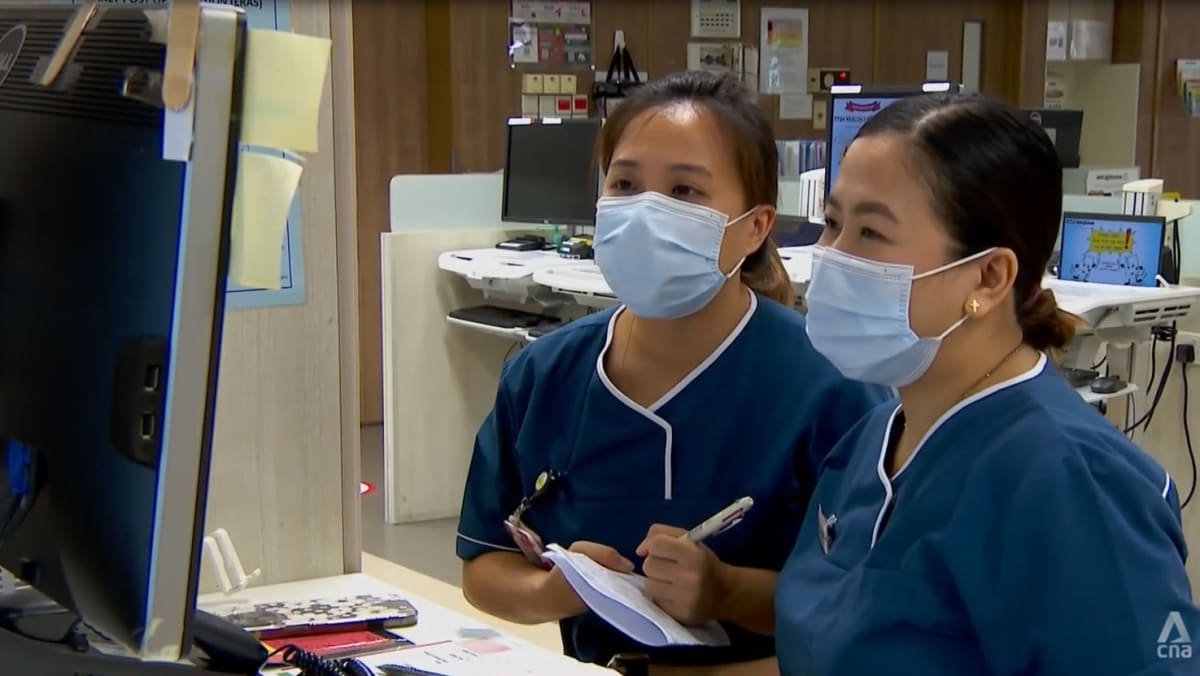SURVEY SHOWED STAFF MORALE WENT UP
The initiative has saved principal nurses about 30 to 90 minutes daily, allowing them to have sufficient break times and focus better on their key tasks, said the hospital in a press release.
After the trial, which took two months from October 2023 to January 2024, TTSH conducted a survey among participating nurses that showed improvements in staff morale.
Almost all of the nurses reported that they were able to get enough rest during a shift, up from 54 per cent. Nine in 10 welcomed their new work arrangements.
The number of nurses who were able to leave work on time for most or all of their shifts also more than doubled, from less than 30 per cent to 70 per cent.
TTSH has also revised its shift handover process, allowing nurses to save two-and-a-half hours per shift thanks to digitisation.
Another major challenge is shift rostering, which is currently done manually. TTSH is working with the Singapore Management University to build an artificial intelligence-supported software that can do such scheduling.
FOCUS GROUP DISCUSSIONS HELD
TTSH noted the challenges in accommodating flexi-work arrangements in nursing, given that it is location- and time-specific.
Before deciding to pilot the liquid nursing programme, TTSH held focus group discussions with its nurses.
They spoke about a lack of flexibility in shift start and end times, as well as shift duration. Nurses also finished work past their official shift end time, due to activities like handover sessions.
The hospital also conducted a “time-motion study” in one of its smart wards for advancing workplace innovations. The study aimed to capture what ward nurses do during their three shifts over a 24-hour workday.
“The study shed light on the peak time periods where patient care needs are the highest and nursing time is most needed. Hence, care activities can be modularised and reassigned to nurses working flexible shift hours,” TTSH said in its press release.
The two-month trial for the liquid nursing programme then began in one ward with 52 nurses. It expanded to three wards by the end of the trial.
Dr Hoi Shu Yin, chief nurse at TTSH, said the hospital began offering flexi-shifts with the intent to promote wellbeing and give nurses the support they need to fulfil their professional and personal aspirations.
She pointed out that some TTSH nurses are mothers like Ms Manjares. Through the programme, they can better organise their time and send their children to childcare.
“Since we started the initiative, we find that there’s greater satisfaction and work because the work schedule is better able to meet their needs,” Dr Hoi added.
